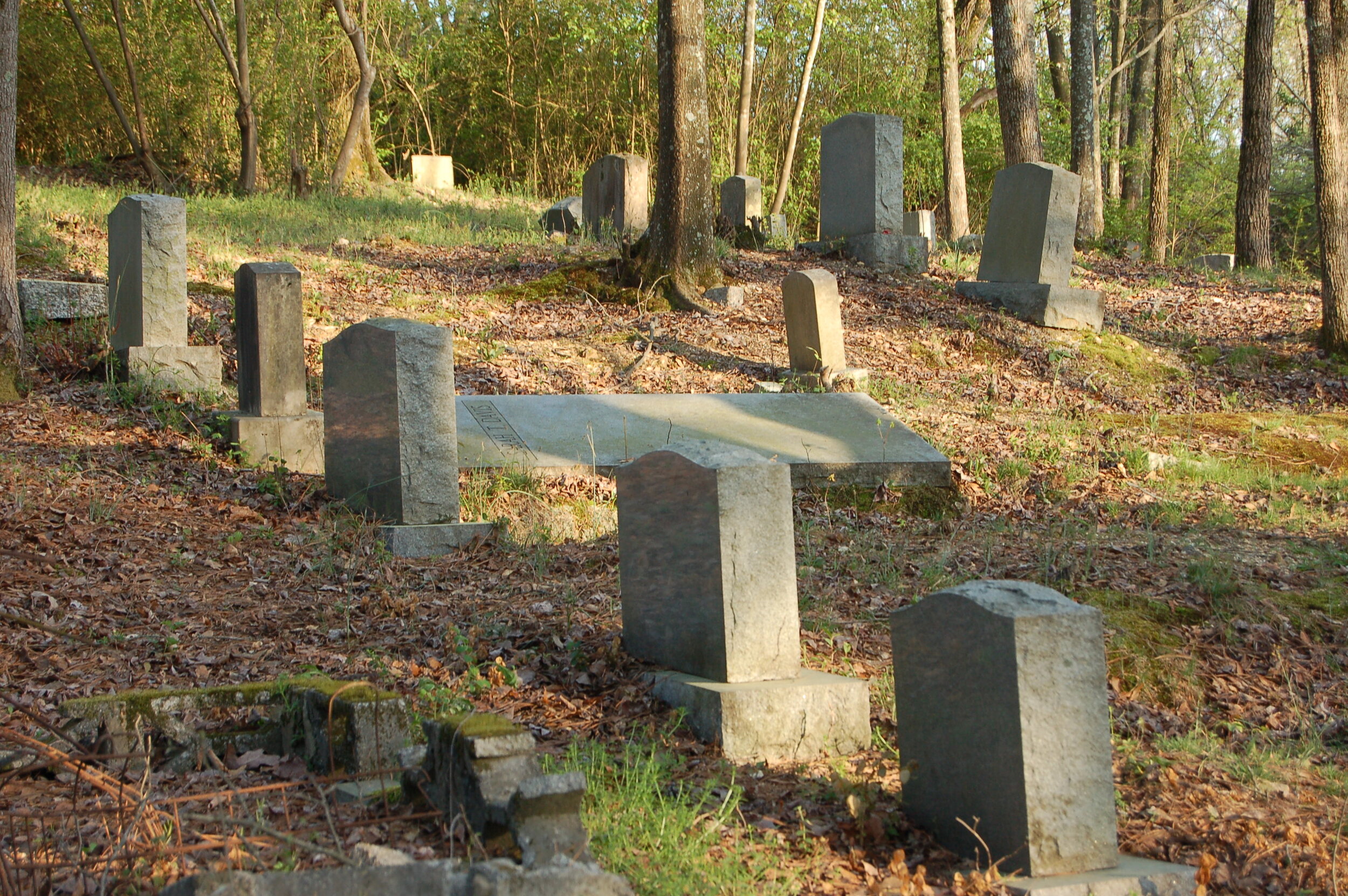
HISTORY
Pleasant Garden Cemetery is one of the oldest exclusively black owned cemeteries in Tennessee. It was chartered in 1890 and opened in 1891 on 12 acres of land, which has since grown to an estimate of 22 acres or more due to the inclusion of an adjoining cemetery. The cemetery is the final resting place for many prominent businessmen and representatives of Chattanooga’s black community from the time following Reconstruction and during the Jim Crow era. In contrast, some of the South’s most tragic historical figures are buried there, including Ed Johnson and one of the Scottsboro boys, Leroy Wright, both of whom were wrongfully convicted and whose cases went before the United States Supreme Court resulting in landmark precedents in civil rights law and criminal proceedings. Despite the historical significance of both the cemetery and those buried there, the cemetery was abandoned more than fifty years ago. Many graves are sunken or unmarked as nature has taken its unrelenting toll upon the property.
OBELISK INSCRIPTION
Founded APR 22, 1890 by RL Cleage
Organized MAR 10, 1891 by RL Cleage
Board of Directors: JH Scott, WW Meadows, S Scruggs, C Bowers, Jos Kemp, Jno Austin, WM Rice, LC Jackson, JW White, SP Johnson, GW Penn, JE Cleage
HISTORY OF VOLUNTEER EFFORTS
Pleasant Garden Cemetery relies upon the work of volunteers to preserve the cemetery grounds and the stories of those interred. Various volunteer groups have sought to preserve the cemetery.
In the late 1970s, the first of several to follow volunteer efforts to preserve Pleasant Garden Cemetery began. Roy Noel, a city employee and President of the Afro-American Heritage Group spearheaded these efforts. Interviews from this time period with Mr. Noel report his plan to have the cemetery added to the National Register of Historic Places. The group had received a grant for maintenance work and planned to work with TVA’s forestry division. As reported in an August 2, 1992 Chattanooga News Free Press interview with group member, George Ricks reported that the group had discontinued the clean-up efforts. Roy Noel had passed away and the group’s efforts were shifted. The cemetery was described as grown over and tombstones hidden.
In 1999, Pleasant Garden Cemetery received national attention after local attorney, Leroy Phillips’, and Dallas Morning news reporter, Mark Curriden’s book, Contempt of Court, the story of the lynching of Ed Johnson, was published. With Phillips’ promise of legal services, The Friends of Pleasant Garden lead by local educator, LaFrederick Thirkill, took up the work of cleaning up the cemetery for a number of years.
Behind the scenes, one man has quietly battled nature’s constant onslaught for control of the cemetery. David Young’s property backs up to Pleasant Garden Cemetery. In the 1980s he was drawn to the cemetery and began clearing the growth and felling trees. In 2012, Young was interviewed for Georgia Tech Alumni Magazine, about his work in the cemetery. Young is responsible for the cemetery as it looks today. He has been its unofficial caretaker for more than thirty years and is a daily figure in the cemetery.













